Insomnia is a problem that affects people all around the world. Estimates put the number of people affected at around a third of the world’s population. Even those who don’t suffer from chronic insomnia frequently have trouble sleeping. Approximately one-third of adults in the United States, according to the CDC, indicate that they sleep less than the recommended seven hours per night. As a result, it’s critical to recognize the dangers that sleep deprivation poses to one’s physical as well as psychological well-being.
Key points about sleep and mental health
- Mental health issues may be exacerbated by sleep disorders.
- Mental health conditions, such as anxiety and depression, can be exacerbated by little or poor quality sleep.
- And if you have a mental illness, it might be difficult to get a decent night’s sleep, which can lead to a sleep disorder like insomnia.
- For all of these reasons, learning how to get a better night’s sleep is essential.
- Steps you can take to aid yourself can also be found in the form of specialized assistance.
- In order to prevent or alleviate the symptoms of mental illness, it is important to improve the quality of your sleep.
The Relationship Between Sleep and Mental Health
A good night’s sleep is essential for both physical and mental well-being, and it’s widely accepted. Lack of sleep can make you irritated and fatigued in the short term, but it can also have major health repercussions in the long run. Heart disease, type 2 diabetes, and depression have all been related to insufficient sleep.
You are reading: Sleep and Specific Mental Health Problems – 4 Ways To Improve
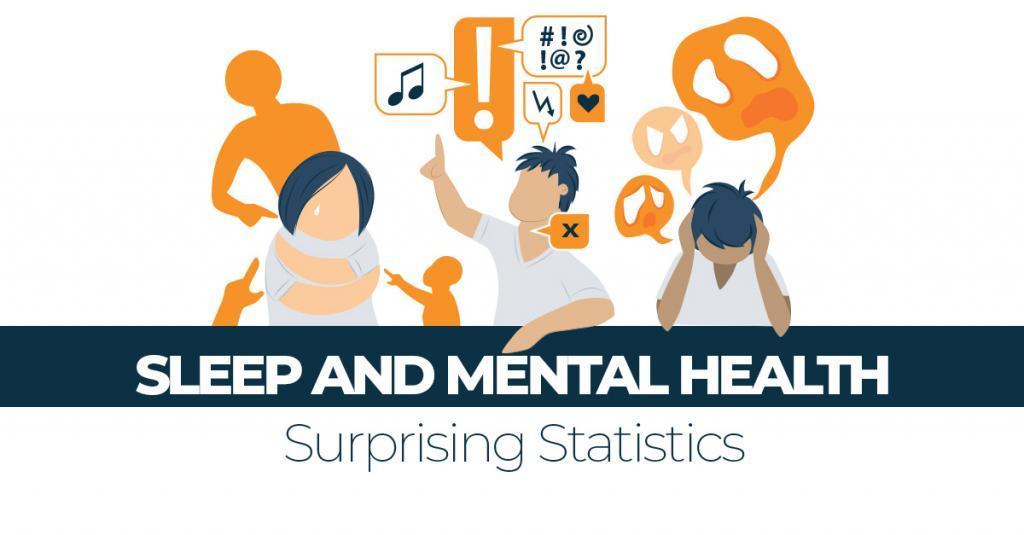
People with mental health issues, such as depression, anxiety and bipolar disorder, are more likely to experience sleep difficulties, which can worsen their symptoms.
Sleep and mental health appear to have a complicated relationship, according to research. In addition to being a common side effect of many mental health illnesses, recent research suggests that sleep may also be a factor in their onset and progression. 1
There is a link between sleep disorders and mental health issues, and sleep disorders can worsen mental health issues. Sleep deprivation may have a role in the onset of certain mental health issues, but researchers aren’t sure why. If you’re having trouble falling or staying asleep, it’s crucial to see a doctor to discuss your sleep patterns and mental health.
Stress
Those who have experienced sleep deprivation know that it can be difficult to get through the day after a night of tossing and turning. You may find it difficult to deal with little difficulties of daily life because of mood changes such as increased irritation and rage.
Even very little stress can be made considerably more difficult to deal with if you don’t get enough sleep. There are several things that can cause us to become irritated on a daily basis. Everyday annoyances may cause you to become impatient, irritated, and short-tempered. Even a lack of sleep can lead to stress. A good night’s sleep is essential, but you may worry that you won’t be able to get or stay asleep each night.
Depression
Depressive symptoms such as insomnia and other sleep disorders are common, but newer research suggests that sleep deprivation may be the root cause of these disorders.
Insomniacs are twice as likely to suffer from depression than persons who don’t have sleep issues, according to a review of 21 studies. Then, the question is if improving people’s sleep can reduce their risk of depression.
Although additional research is needed, some researchers believe that addressing insomnia early in life may be an effective preventative technique to help lower the risk of depression.
Insomnia treatment is clearly a vital step toward improving psychological health, and the prospect that such treatments may also be an useful strategy for preventing or treating mental health issues is exciting.
Researchers studied the effects of sleep deprivation on sadness, anxiety, and paranoia in more than 3,700 people. 3 Some participants received cognitive-behavioral therapy (CBT) for their sleeplessness, whereas others received no treatment at all. Treatment with CBT was reported to reduce symptoms of sadness as well as anxiety and paranoia, as well as nightmares. The ability to operate at home and at work was also cited as an improvement in their general well-being.
Anxiety
The link between sleep deprivation and anxiety, like many others, appears to run both ways. Those who suffer from anxiety are more likely to have sleep problems, yet sleep deprivation itself can exacerbate anxiety symptoms. This can lead to a vicious cycle in which sleep deprivation and anxiety are exacerbated.
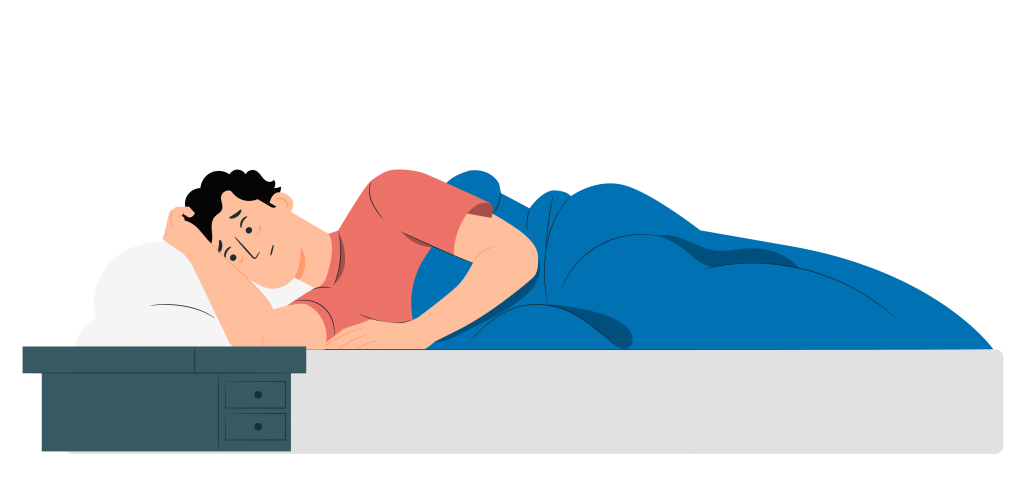
Another risk factor for having an anxiety disorder is insomnia. Anxiety disorders in adolescents and teenagers, especially those between the ages of 9 and 16, were found to be associated with sleep issues in one study. Anxiety disorders can be more common among those who have difficulty sleeping, especially if the problem is left untreated for an extended period of time.
It’s more difficult to deal with feelings of anxiety when you’re exhausted from sleep disruptions. As a result, sleep deprivation can exacerbate the symptoms of anxiety disorders. Although sleep deprivation is a typical post-traumatic stress disorder symptoms (PTSD) affecting up to 90% of people, sleep deprivation may also play a role in the genesis and progression of this disorder.
Sleep deprivation can have a severe impact on the mental health of even the healthiest persons. Sleep deprivation can lead to increased worry and distress in healthy adults, according to one study. 5 While you may not feel anxious even if you generally do, a lack of sleep might make you feel agitated and depressed.
Bipolar Disorder
Read more : Sensory Processing Disorder And Sleep: A Few Tips to Remember
People with bipolar disorder are more likely to experience sleep problems. Insomnia and nightmares are among the most common sleep disorders. Depression and euphoria are common symptoms of bipolar illness, which occurs when a person’s mood swings between the two.
In addition to being a sign of the disease, sleep disturbances can affect the course of the illness, the effectiveness of treatment, and the well-being of the patient as a whole.
Mania and hypomania can be triggered by a lack of sleep. Between 25 and 65 percent of people with bipolar disorder experienced alterations in their usual sleep/wake pattern prior to the commencement of their manic episode, according to research. Talk to your doctor if you’re experiencing trouble sleeping because of bipolar disorder.
ADHD
Of all children aged six to 17 years, as many as 5.3% have ADHD, which is a frequent mental health problem. A lack of sleep has been linked to ADHD, and evidence suggests that sleep abnormalities may play a role in its symptoms. Studies have indicated that between 25% and 55% of children with ADHD also have sleep issues.
As a result, children with ADHD may have difficulty falling or staying asleep, difficulties waking, sleep breathing abnormalities, night waking, and daytime drowsiness.
In order to address underlying sleep difficulties, ADHD treatment typically begins with an evaluation of existing sleep habits and patterns. There is evidence to support the idea that sleep therapies can help alleviate the severity and general quality of life associated with ADHD.
How does CBT for insomnia work?
Education about sleep and behavioral and cognitive changes are the main goals of the treatment.
It is important for people to learn about excellent sleep hygiene, which includes measures such as keeping daytime naps to a minimum and avoiding the use of caffeine in the evening.
A few of the methods used are as follows:
- Reducing the length of time a person spends in bed in order to better fit their sleep requirements.
- Limiting the use of the bedroom to sex and sleep, going to bed only when tired, and waking up after 15–20 minutes of awake are all examples of stimulus management.
- Tensing and relaxing the muscles while in bed, or simply focusing on the breath, are examples of relaxation.
A number of cognitive approaches are available to students.
- Reflecting on the day before going to sleep is an important part of this process.
- contradictory motives, or the desire to keep awake
- Changing one’s outlook on sleep entails addressing one’s unrealistic sleep expectations.
- acknowledging one’s thoughts and feelings before allowing them to fade away
- images that need a person’s mind to conjure up pleasant thoughts
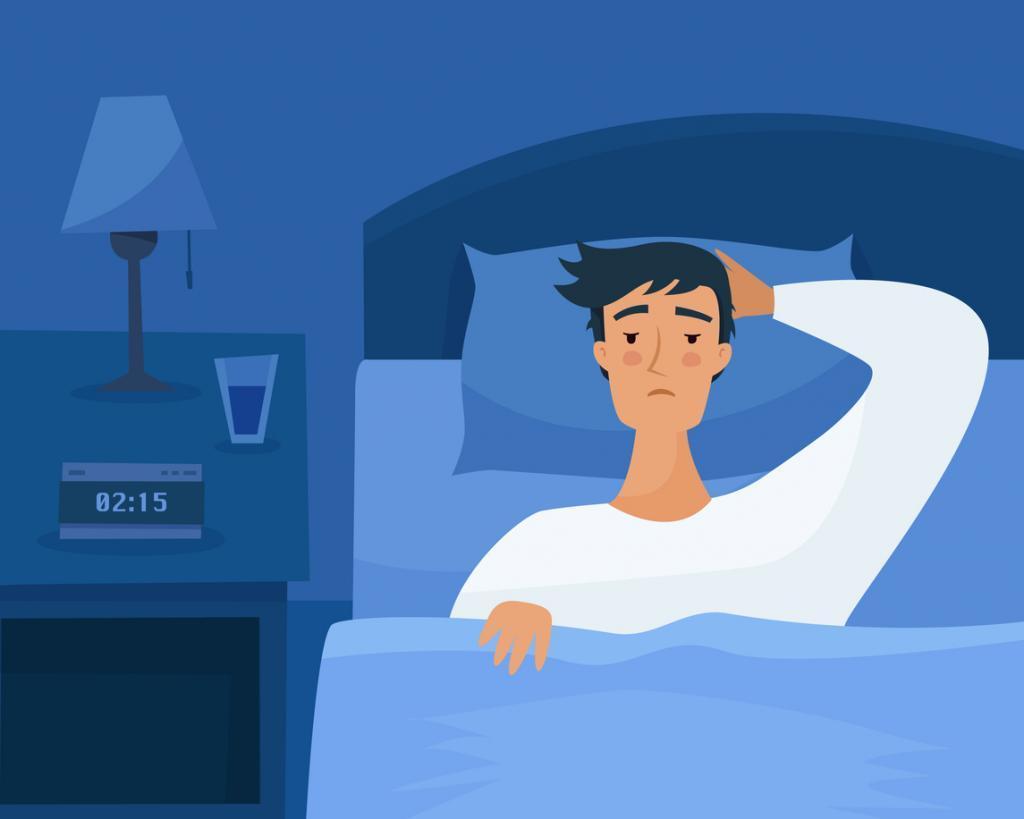
What causes problems with sleep?
Everyone’s sleep is affected by a variety of factors, some of which are unique to each individual. For instance,
- tension or anxiety — for example, financial, housing, or work-related concerns –
- sleep issues – for example, if you sleep somewhere unpleasant or are easily disturbed –
- problems that affect sleep, such as insomnia or sleep apnea.
- parenting or caring for a child
- taking medication, whether it is new or old,
- The use of illicit drugs and alcohol for pleasure
- shift work or night shift work
- the present or past adversity
- Some of which can interfere with your ability to sleep include issues with your mind and body.
See the Mental Health Foundation and the Royal College of Psychiatrists websites for more information on sleep problems, as well as our list of helpful contacts.
Ways To Improve Both Sleep and Mental Health
Anxiety, depression, and other forms of mental illness can all interfere with a good night’s sleep, and vice versa. Because of the many facets of this interaction, it is possible to treat both sleep disorders and mental health difficulties at the same time. Taking steps to sleep better can even be part of a mental health prevention strategy38.
Because each person’s mental health and sleep issues are unique, so is the best treatment. For the sake of one’s health and well-being, working with a trained health expert is essential.
There are a variety of therapy options, including prescription drugs, that can be evaluated by a doctor or psychiatrist. They are able to give personalized care, even in the case of any co-occurring physical or mental health conditions. There are several ways to improve one’s mental health, for example, by detecting and treating conditions like obstructive sleep apnoea 39.
Treatment strategies might vary greatly, but the following sections outline a few options that may help with sleep and mental health.
Cognitive Behavioral Therapy
The term “talk therapy” is used to characterize cognitive-behavioral therapy (CBT). It is based on the premise that by studying one’s thinking patterns, one might find new methods to construct negative thoughts.
Read more : Why Improving Your Sleep Satisfaction Can Increase Your Energy Level?
Depression, anxiety, and bipolar illness all have their own forms of cognitive-behavioral therapy (CBT). In addition, CBT for insomnia (CBT-I) has an established track record of improving sleep. Large clinical trials have shown that CBT-I can improve emotional well-being and minimize psychotic episodes in a wide range of mental health problems.
If and how CBT can address both sleep and mental health issues is a matter of current research, but for many patients, a professional counselor to reframe their thinking can effectively improve both sleep and mental health.
Improve Sleep Habits
Poor sleep hygiene is one of the most common causes of sleep issues. It’s a good idea to improve sleep hygiene by developing good sleep habits and creating an environment that encourages slumber.
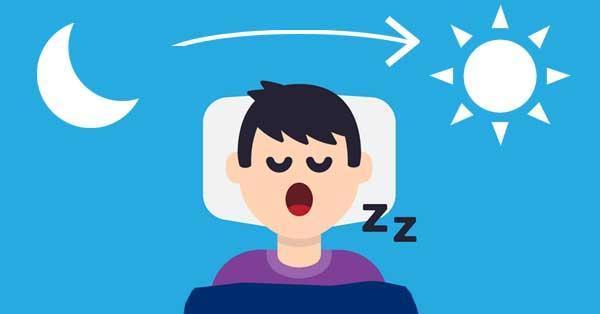
Improved sleep habits can be achieved by doing the following steps:
- Setting a regular time for bed and sticking to it will help you sleep better.
- Making it a habit to unwind before going to bed, whether it’s through meditation or yoga.
- Night-time abstinence from alcohol, smoke, and caffeine
- Lights should be dimmed and electronic gadgets should be put away for at least an hour before going to sleep
- exercising and exposing yourself to sunlight on a regular basis during the daytime
- Maximizing the comfort and support from your mattress, pillows, and bedding.
- Excessive light and noise are blocked out to prevent sleep disturbances.
Even though it may take some trial and error to find the habits and bedroom arrangements that work best for you, doing so will pay off in the long run by making it easier for you to go asleep and stay asleep all night.
Coping
Regardless of whether or not you have a psychiatric disorder, the treatment suggestions for sleep problems are largely the same. A person’s first steps in a treatment plan are frequently focused on simple alterations to their daily routine that can help them sleep better. You can improve your sleep by avoiding sleep disrupters (such as caffeine, nicotine, and alcohol) and developing appropriate sleep routines.
It is possible to sleep better and feel better on your own, even if you do not seek medical attention. To avoid daytime drowsiness, it is essential to maintain appropriate sleep hygiene or activities that help you sleep.
Here are a few ideas to get you started:
- Restrain yourself from taking too many naps. Sleep deprivation might affect your ability to fall and stay asleep at night. If you’re feeling drowsy and sluggish, a 20- to 30-minute snooze per day can help.
- Ensure that you have a nightly ritual. Maintain a routine that helps you wind down for the night. Taking a bath, reading, or meditating can help you relax your mind and body. To ensure a good night’s sleep, repeat these nightly rituals.
- Avoid consuming caffeine or other stimulants right before night. In the late afternoon or evening, drinking coffee, soda, or other caffeinated beverages might make it difficult to get to sleep.
- Shut down all electronic gadgets. Watching TV or playing phone games right before going to bed can make it more difficult to wind down and drift off to sleep. Before you go to sleep, consider setting a time restriction for when you’ll stop using your electronic gadgets.
A mental health expert can help if you believe your sleep issues are linked to or exacerbated by a mental health issue. It’s possible that treating your sleep problems could have a good impact on your mental health, as depression, anxiety, and other psychiatric diseases can disrupt your sleep.
Treatment to help with sleep problems
Consult your physician if self-help doesn’t yield results. Before your appointment, consider keeping a sleep record for 10 days to help you describe the issue. In most cases, doctors will check for any underlying medical or psychological reasons for the problem and may recommend additional lifestyle modifications to help you sleep better.
For insomnia, your doctor may prescribe sleeping drugs if these don’t help. Sleeping pills can be helpful in the short term, but their effectiveness gradually diminishes and can even worsen your insomnia. They are also highly addicting. If you use sleeping tablets for any of the above reasons, they are usually prescribed at the lowest possible dose for the shortest amount of time.
A specialist sleep disorder clinic may be recommended by your doctor if your issues continue.
What if my child has sleep problems?
In order for a child to grow and develop, they require a lot of uninterrupted sleep, but this isn’t always the case. As a whole, this can have a significant influence. Children may have difficulty falling asleep, wake up frequently during the night, suffer from nightmares, or even sleepwalk. A regular sleep schedule appears to be particularly problematic for some children with impairments such as autism.
Children can benefit from some of the self-help strategies listed above. Keep a sleep diary to show your doctor if you have any concerns. Excessive sleepiness or a persistent unwillingness to get out of bed could be signs of depression or another mental health condition. Make an appointment with your child’s doctor if he or she is having trouble sleeping.
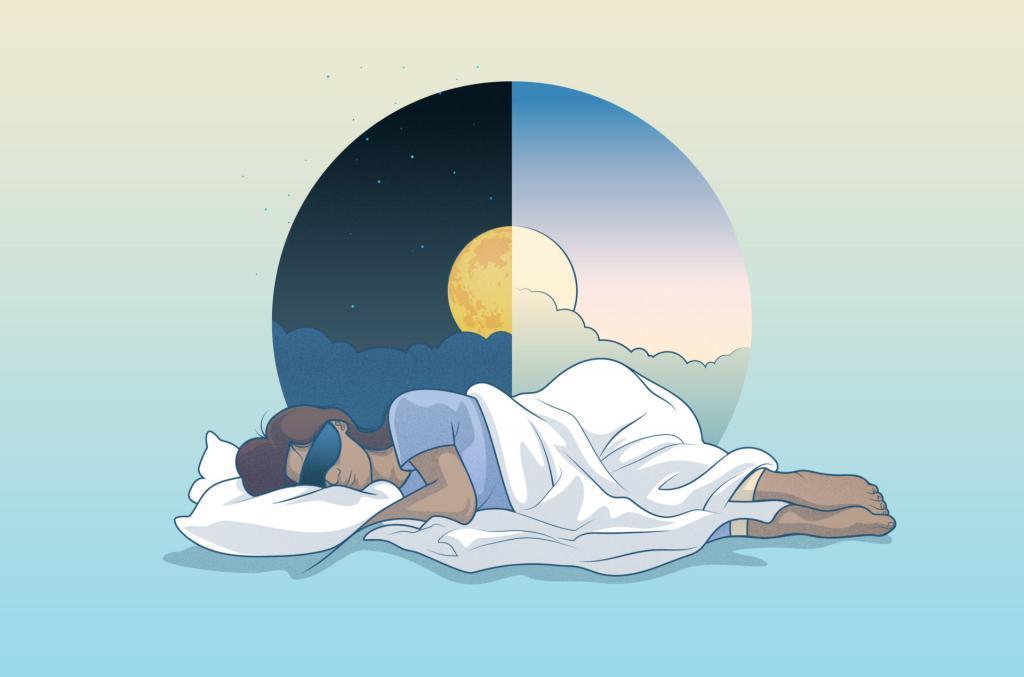
A Word From Verywell
Poor sleep has been shown to have a significant influence on mental health and emotional well-being, as well as on physical health. Even though sleep problems are commonly associated with other mental health issues like sadness and anxiety, they may also be the root cause of or a contributing factor in the emergence of those conditions themselves.
The earlier you treat sleep issues, the better off you will be in the long run. If your sleep issues persist despite your best efforts to improve your sleeping habits, see a doctor. Your sleep troubles could be caused by a medical ailment or a sleep disorder.
What do you think?
Source: https://bestpillowsleepers.com
Category: Sleep Advisors





